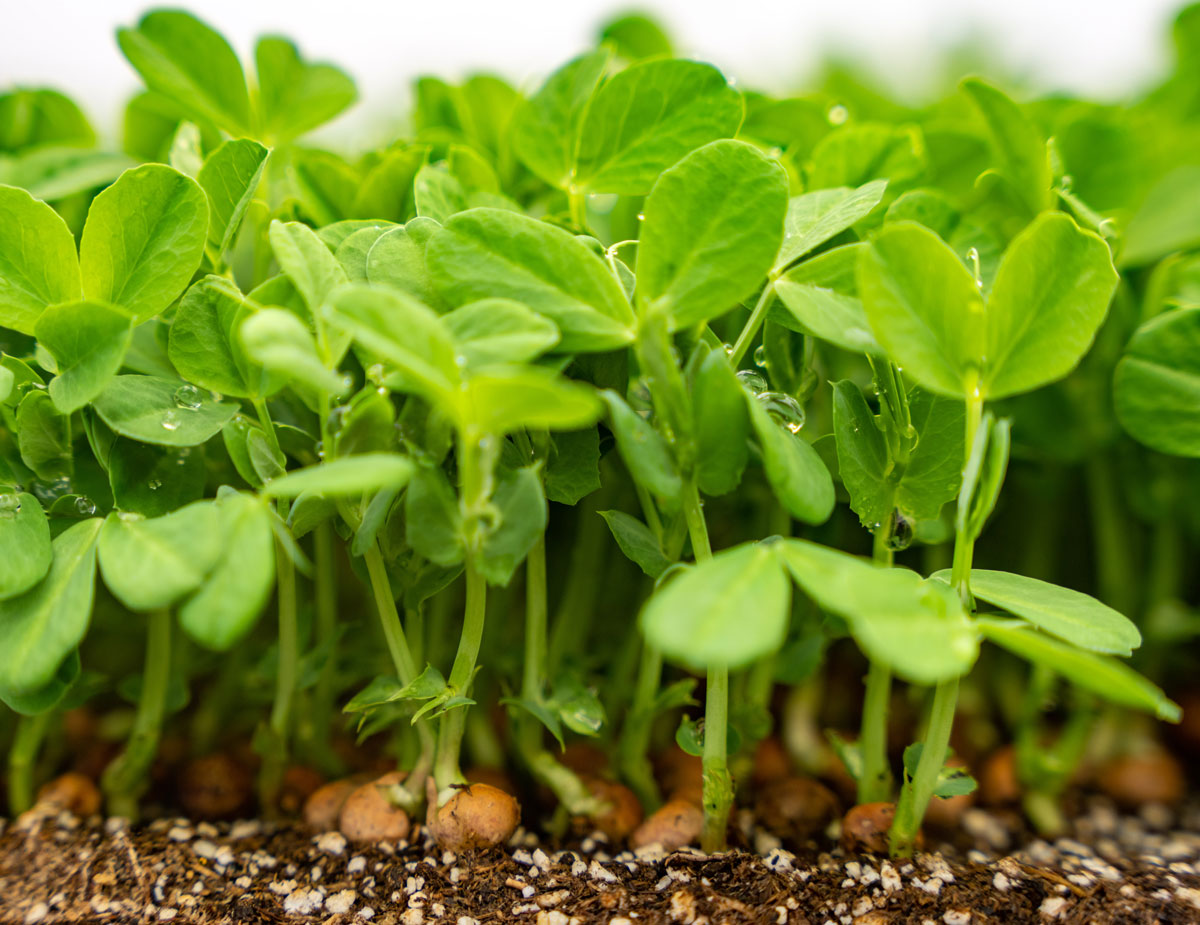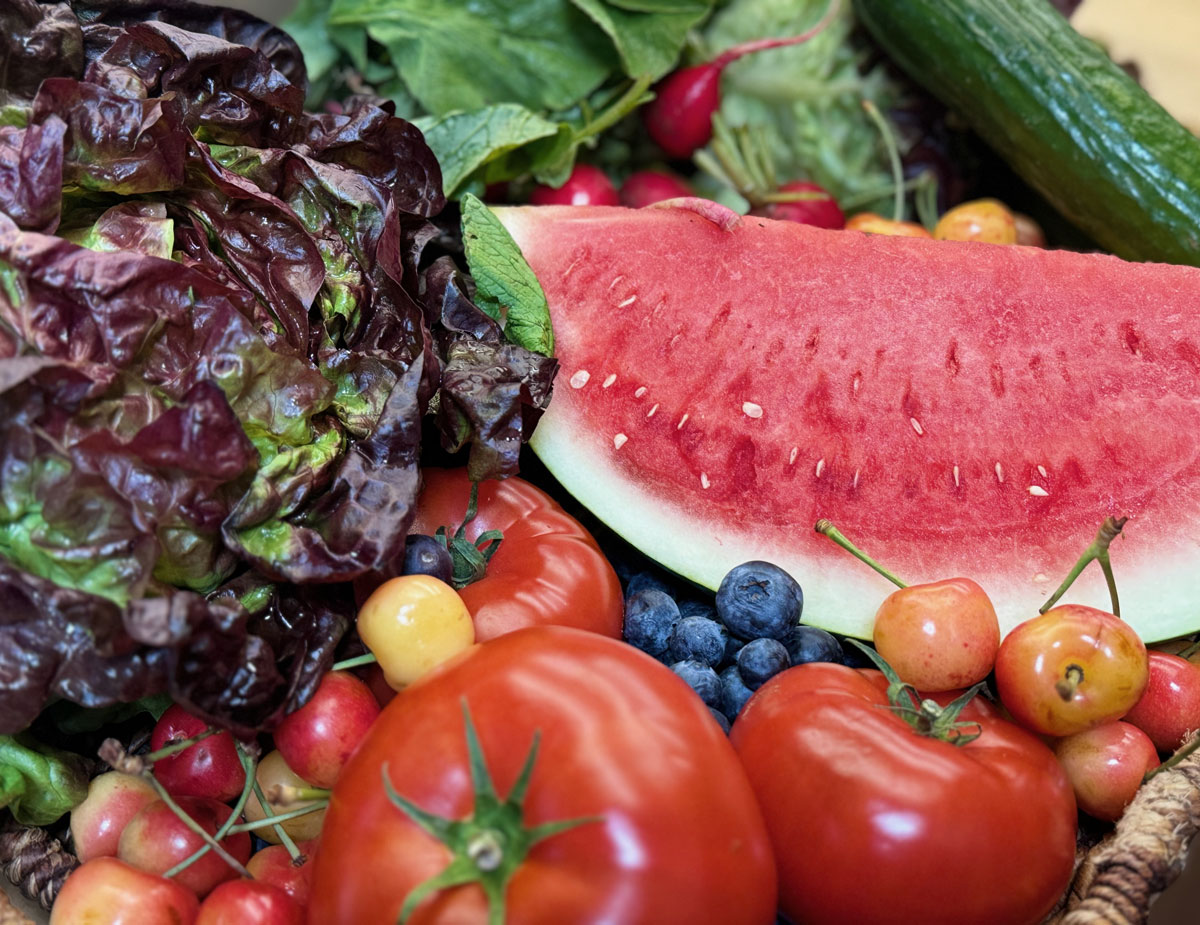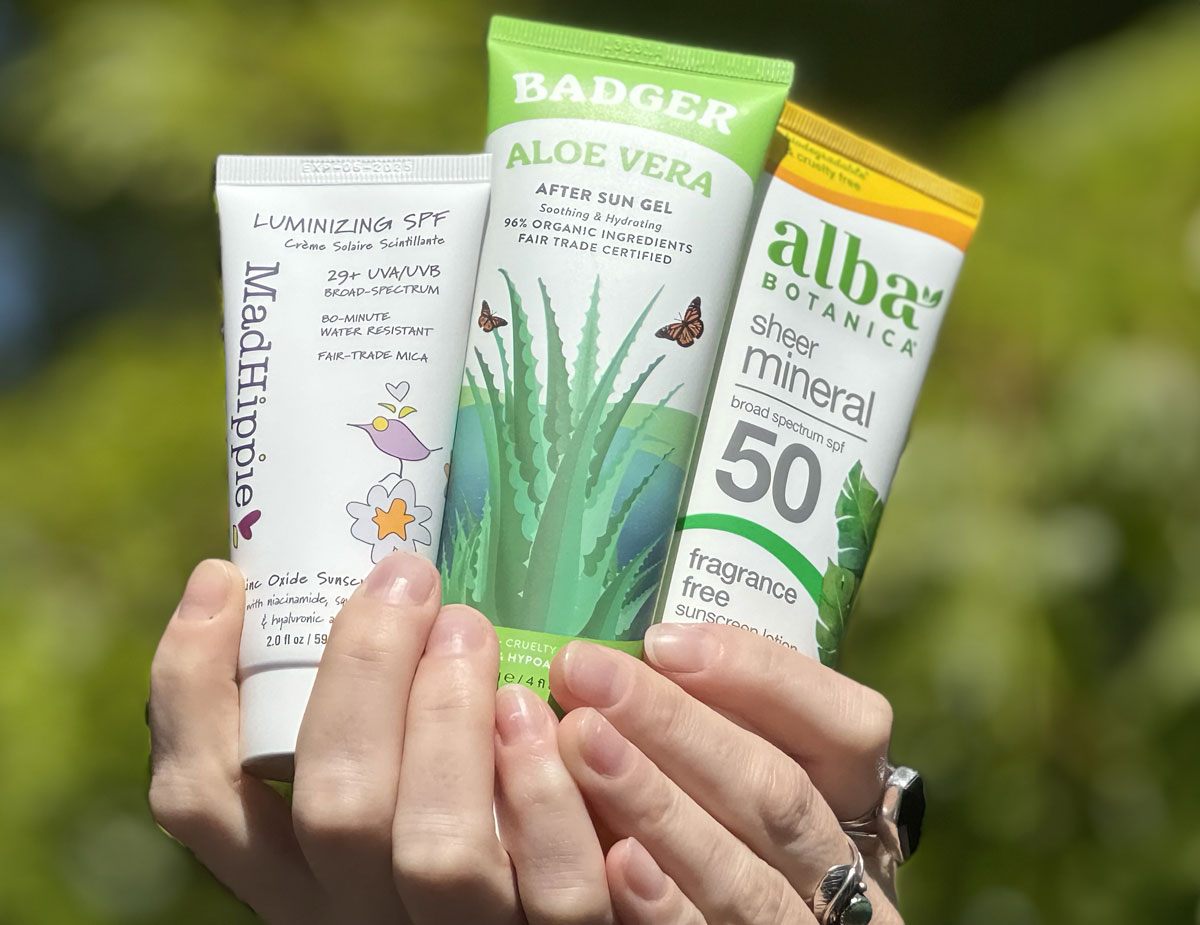Did you know you can have a positive impact on the environment just by making your garden more eco-friendly? Read on to learn how you can create an eco-conscious garden at home.

What is eco-conscious gardening?
Eco-friendly gardening is about cultivating sustainable habitats for native plants to live symbiotically with insects, and where water waste is minimized. We can help protect our planet and come closer to solving our greatest environmental challenges just by building these sustainable habitats in our gardens. Here are a few tips to get you started.
Attract pollinators and wildlife
Plant crops and flowers that attract pollinators like bees, bats and other beneficial insects. Without pollinators we couldn’t grow many of the foods we need to survive, so it’s important that we plant vegetation to support them. The bonus: flowering plants will make your garden more beautiful and robust.
Choose native plants and resilient varieties
Create your own wildflower patch with native pollinator plants for Oregon, to make your garden more eco-friendly and to encourage wildlife diversity. Wildflowers, shrubs and trees that are native to Oregon are best suited for our climate, so they require little irrigation. They’re also the best source of pollen for native pollinators. Be sure to plant in sunny areas, and choose flowers that bloom at different times to sustain pollinators throughout the season. It’s also important to note that planting in groups will attract more pollinators than single plants scattered around the yard.
Conserve water
Plants need a lot of moisture to thrive, but there are many ways you can conserve water usage in the garden and still maintain healthy crops. Here are a few creative ideas.
- Use mulch to hold moisture in.
- Water in the morning to allow moisture to reach the roots before the sun heats up the soil and evaporates the water.
- Check the soil before you water. If it is still wet 3-4 inches below the surface, you can wait another day or two before watering again.
- Consider using rain barrels to collect rainwater for use on particularly dry summer days.
- Install a drip irrigation line to avoid excess water use from the hose.
Use organic pest control
Chemical pesticides damage our soil, water ways, and helpful insects and pollinators. What’s more, most insects are actually beneficial to the garden, so using pesticides works against your best interest. But when serious pest issues arise it’s helpful to know you have options that don’t include chemical pesticides. For example, planting marigolds around the perimeter of your garden helps to keep mosquitos and other harmful bugs at bay. You can also use a mesh covering around vulnerable veggies, and take advantage of companion planting.
Control Weeds Organically
Manage weeds organically so that you don’t disrupt the tiny ecosystem that you’ve created in your eco-conscious garden. Pull weeds by hand or use a hoe to dig them out, and lay mulch to control weed production. Some weeds, like dandelions, are edible and quite nutritious. Pick them when their leaves are young and toss them in with your salad greens.
Pay attention to soil health
Incorporate compost into your garden when you plant by placing a handful in each hole along with the plant. Our experts recommend laying 1-2 inches of compost on the soil in the fall, then tilling it into the soil in the springtime.
Make your own compost
Composting is a great way to reduce waste at home and fertilize soil. Collect organic kitchen scraps like vegetable skins and parts, fruit, and coffee grounds in an outdoor compost heap. Garden scraps such as dried leaves and clippings also make great composting material.
Timing is everything
April is prime planting season in Oregon, but always check the weather reports before you dig in. It’s not uncommon for a spontaneous frost to sweep through the valley at the beginning of the month. Begin with cold crops like cabbage, carrots, radish and peas. As the weather warms up and the soil reaches 60 degrees or warmer, you can begin to plant the warm weather crops like tomatoes, peppers and basil.
Plants to look for at your local Market of Choice
Your Market Floral Department carries many of your favorite veggie starts and native plants from local wholesale growers, like Log House Plants and Peoria Gardens. Look for these varieties next time you stop by the floral department.
Cold Weather Crops
- Broccoli
- Cauliflower
- Kale
- Brussels sprouts
Warm Weather Crops
- Tomatoes
- Peppers
- Squash
- Corn
Organic and Conventional Herbs
- Rosemary
- Parsley
- Lemongrass
- Lavender
- Sage
- Oregano
Explore More Topics
Related Posts
- A Busy Person’s Guide to Staying Hydrated
Whether you’re an athlete or an office employee, chances are your lifestyle is fast-paced and on-the-go. Our modern way of living poses unique challenges to staying hydrated and healthy at any level of physical activity.
- Oregon’s Summer Harvest
It’s summer time in the Pacific Northwest which means sunnier days, warmer weather, and a time for exploring the fresh, delicious harvest that local farms have to offer.
- Your Guide to Natural Sun Care and After Sun Care Products
Our Whole Health experts answer the most common questions about sun care products and after sun care, including local Oregon-made brands.



